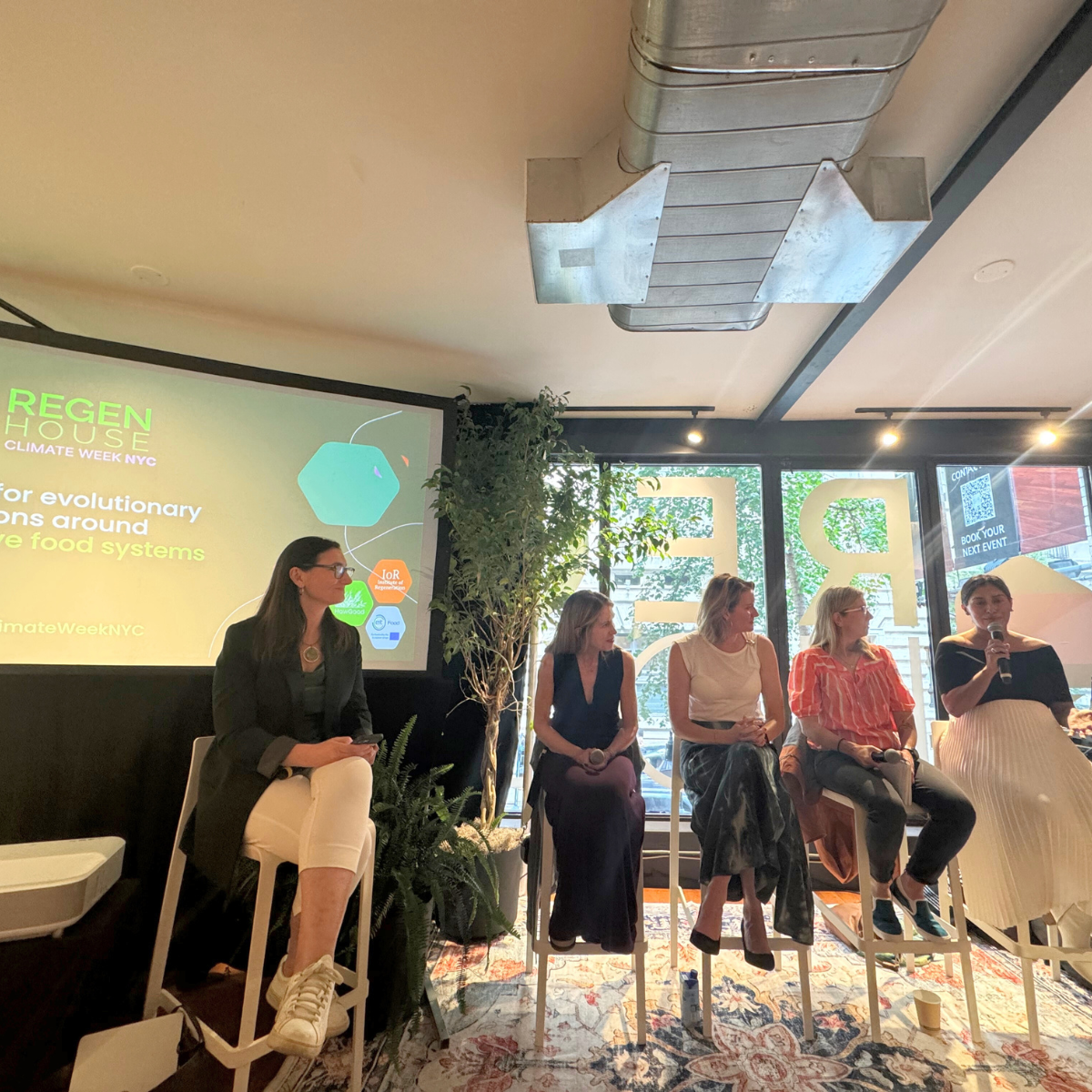EVENT
Climate Week 2025: Regenerative Ag Takes Center Stage
October 1, 2025 12:00:00 PM

Get the latest from CIBO. Stay connected with news, expert insights and exclusive event invitations.
SubscribeBy Susan Hunt Stevens
This year’s Climate Week in New York felt like a tipping point for regenerative food and agriculture in the U.S. The energy was electric—hallways packed, sessions standing-room-only, and a real sense that regenerative agriculture has moved from pioneering pilots to the center of the conversation about food, soil, human, and environmental health.
The hub of activity was REGEN HOUSE, hosted by the brilliant team at HowGood and home of the best snacks at Climate Week. Across four days and three floors (plus a roof deck), the “who’s who” of food brands, agribusiness, NGOs, investors, and farmers filled the space. The conversations were sobering and motivating. Farm economics are crushing right now. Reports show brands missing the mark on commitments. The world faces a population both obese and malnourished, and MAHA research shows 40% of US children live with a chronic health condition. At the same time, consumer awareness is rising. People increasingly want transparency, authenticity, and measurable impact from the food brands they trust. Regenerative organic is the fastest growing category in both natural and conventional retail.
I had the privilege of moderating From Scrappy to Impactful: What Big Brands Can Learn from Regenerative Upstarts. Hearing from Simpli, Lundberg, GoodSam, and SolSimple, what struck me was how these companies often had to build entirely new supply chains to meet their goals. They are proving what’s possible—shorter supply chains, deeper farmer partnerships that often improve farmer profitability and resilience, and storytelling rooted in place and purpose. The challenge for larger companies is adopting these principles without diluting them. Encouragingly, we saw announcements of serious investment, including a $200M commitment from McDonald’s and the Pepsi/Unilever-led industry “STEP Up for Ag” initiative.
The State of Regenerative Ag Summit, hosted by the Why Regenerative team, dove deeper into policy, financing (with good news from both public and private sources), animal welfare, and nutrient density measurement. The day ended with an inspiring keynote from Paul Lightfoot of Patagonia Provisions, offering a glimpse of what’s possible when pioneers scale their vision.
My week closed with two moments that grounded theory in practice. First, a visit with DONA Teas in Brooklyn, whose regenerative organic spices from smallholder farmers filled their facility with the unforgettable aroma of chai. Then, the Kiss the Ground benefit dinner at Blue Hill at Stone Barns, where hope mixed with urgency over a cover crop salad and retired dairy cow burgers (delicious, for the record). Sharing a meal with farmers from Montana and North Carolina, biochar innovators from Tennessee, and the health correspondent for the Today Show reminded me how broad and interconnected this movement truly is.
The takeaway is clear: 2025 is the year that regenerative agriculture went mainstream. The work ahead is funding it and scaling it. If Climate Week was any indication, those efforts are gaining some serious momentum.
Susan Hunt Stevens is a Strategic Advisor to CIBO Technologies and an award-winning 3X founder in climate-tech and sustainability. A recognized expert in behavior-change design, she has also held senior digital roles at New York Times Digital and Boston.com.